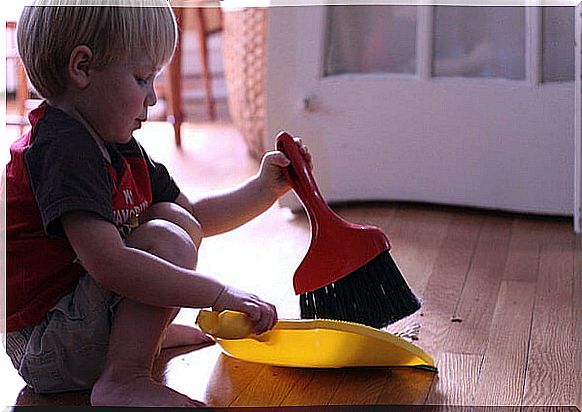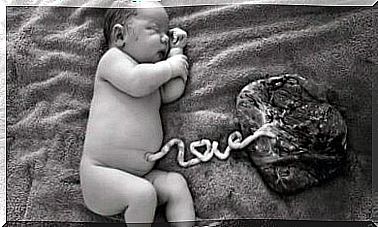Montessori Tips For Collaborative Children

Maria Montessori was an important educator, scientist and philosopher. His pedagogical methods, considered radical for the time, are based on respect for the child and trust in his abilities. Thanks to Montessori advice we know today that the child is like a sponge: he absorbs everything he sees, hears or perceives.
According to the Montessori philosophy, there must be motivation for learning to take place. The notions must be reasoned and internalized and not introduced by force.
The child must learn to love, respect their environment and, in this way, evolve. These concepts were harshly criticized at the time by the more conservative sectors who saw such innovations as harmful, as they were very different from the methods in use.
Today, however, the advice of Maria Montessori is highly appreciated in the educational field. Many schools are named after this great educator and still use her teachings. His thinking, however, is not applicable to the scholastic context alone. There are many parents who are inspired by his method of encouraging children to be self-sufficient at home.

The behavior of a child is a direct effect of the behavior of the parents. Show him how to play, he will play. Make fun of him, he will grow up insecure adult. Teach him right now to be right, he will become right.
The same goes for small housework. If as a child he begins to actively participate in what is happening inside the home, your child will soon learn to be self-sufficient. Each stage of development has its advantages and disadvantages, but all of them are positive. What is not learned in one phase, is learned in the next.
Montessori tips: from 2 to 12 years
2-3 years
At this age, the child is too young to participate in most tasks. You can start with small steps such as helping to set the table, pour water into glasses or sweeping small areas of the house. Moreover, he can already be taught to clean where he has eaten or to dust the lower surfaces.
4-5 years
You can entrust your child with more specific tasks, such as putting the cutlery or removing the dirty dishes from the table. It is also a good time to learn how to vacuum or help tidy up your groceries. Other jobs within his reach include making the bed, wetting the plants and feeding the dog or cat.
6-7 years
This is the perfect time to learn how to prepare simple dishes. Sweeping and emptying the dishwasher are also within your reach. Also, peel potatoes and carrots, pull weeds from the garden, or fold up your socks.
8-9 years
At this age, you can ask him to wash the floor. She can learn how to make coffee and squeeze oranges, take down the trash, and clean more difficult surfaces like the refrigerator. If you have a dog, you can start walking it.

10-11 years
The child can learn to cook simple dishes or plan the menu of the day. Walking the lawn mower and sewing are other possible activities. Others, such as going down to get the mail or vacuuming the carpet, may have already learned in the previous stages.
Ages 12 and up
This last stage of childhood allows your child to do more difficult activities. At this point he is perfectly able to help wash the car, prepare more elaborate dishes and clean the windows.
Other jobs he can do are: ironing, replacing a light bulb or even helping you to whiten your home. And, of course, it’s the right time to help you look after your little brother or sister.
In a nutshell, Montessori advice revolves around an idea: we respect our children. We grant them the opportunity to make mistakes without tormenting them for it. As they say, you learn by making mistakes.
Address the child politely, encourage him to achieve his goals. Never ridicule him. Listen to his ideas and problems, always with great patience. If you treat him with love, sweetness and respect, he will grow strong and with his own personality.
A kind attitude towards others and self-confidence will help him get back up when things don’t go well. He will be a diligent and independent person but will always feel admiration for the person who has always trusted him.









